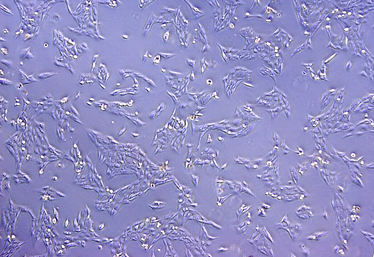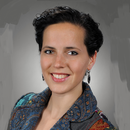The Hopp Children’s Cancer Center Heidelberg (KiTZ) is a joint institution of the German Cancer Research Center (DKFZ), University Hospital Heidelberg (UKHD) and the University of Heidelberg (Uni HD).
In the study, which has recently been published, the researchers from the Hopp Children’s Cancer Center Heidelberg (KiTZ) and the German Cancer Research Center (DKFZ) were able to show the influence of FOXR2 on the aggressive growth of neuroblastoma, and also found a link between FOXR2 and another known driver of cancer in neuroblastoma: the MYCN protein stops precursor cells developing into mature nerve cells, so that they remain able to divide indefinitely and can degenerate into malignant cancer cells. “In our studies, we have discovered that MYCN concentrations are very high in FOXR2-forming tumors, and that MYCN is stabilized by FOXR2,” says Felix Schmitt-Hoffner, researcher at the KiTZ and the lead author of the paper. “Excessive production of MYCN is already a known risk factor in neuroblastoma. A stabilizing effect caused by FOXR2 could be an alternative mechanism that boosts the MYCN level even without genomic amplification of the MYCN gene.” The scientific research data comes from an analysis of tumor samples from a total of 1,030 patients.
Around one in 100,000 children develop neuroblastoma each year, often in their first year of life. This makes neuroblastoma a relatively common group of tumors in children. They form during embryonic development in primitive nerve tissue – neuroblasts – and are found primarily in the adrenal glands, along the spine, in the neck area and in the chest, abdomen and pelvis. Neuroblastoma are hard to treat and often resist therapy. The prognosis for affected children varies widely: whereas in some patients the tumors shrink spontaneously, in others, the disease has a very unfavorable outcome.
“In FOXR2 we have now identified an independent prognostic factor that can help us improve how we assign children with neuroblastoma to risk groups,” explains Marcel Kool, research group leader at the KITZ and at the DKFZ. “In addition, our findings regarding the stabilization of MYCN by FOXR2 could explain the poor outcome for some patients and provide jumping-off points for new therapeutic approaches.”
KiTZ researcher Frank Westermann, head of department at the DKFZ, who led the study, adds, “In order to make use of the findings for new therapeutic approaches, we are currently looking for active substances that target FOXR2.”
Original publication:
Schmitt-Hoffner F. et al. FOXR2 stabilizes MYCN protein and identifies non-MYCN-amplified neuroblastoma patients with unfavorable outcome. In: Journal of Clinical Oncology (online publication 10th of June 2021). DOI: 10.1200/JCO.20.02540
Press contact:
Dr. Alexandra Moosmann
Hopp-Kindertumorzentrum Heidelberg (KiTZ)
Referentin Presse- und Öffentlichkeitsarbeit
Im Neuenheimer Feld 130.3
D-69120 Heidelberg
T: +49 (0) 6221 56 36434
E-Mail: a.moosmann[at]kitz-heidelberg.de
E-Mail: presse[at]kitz-heidelberg.de




